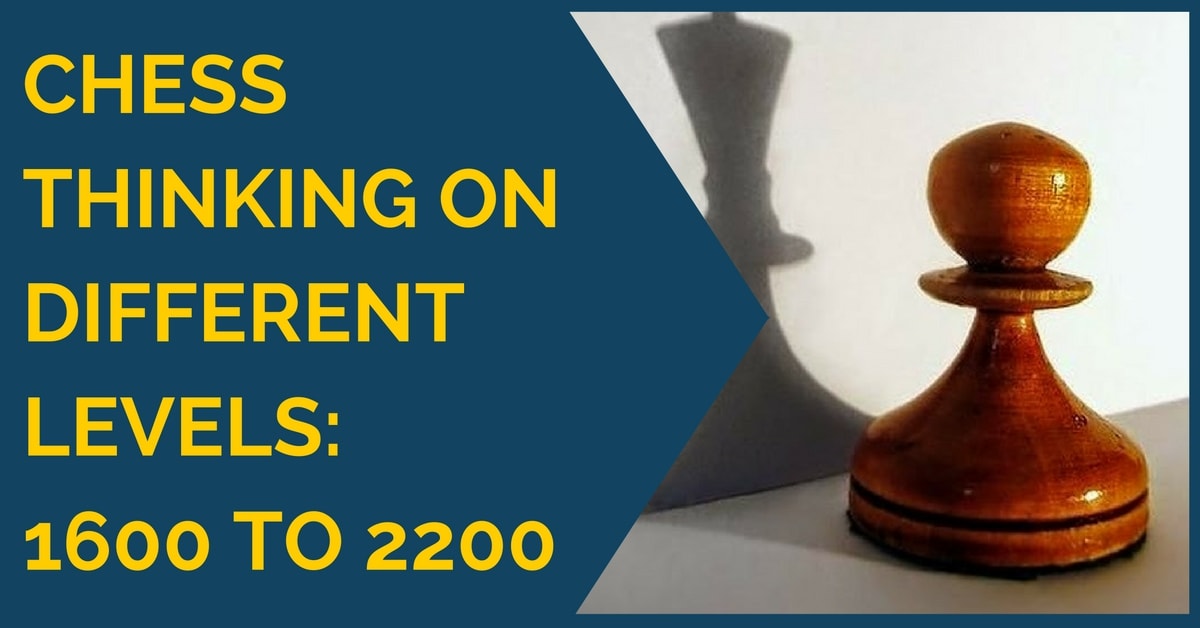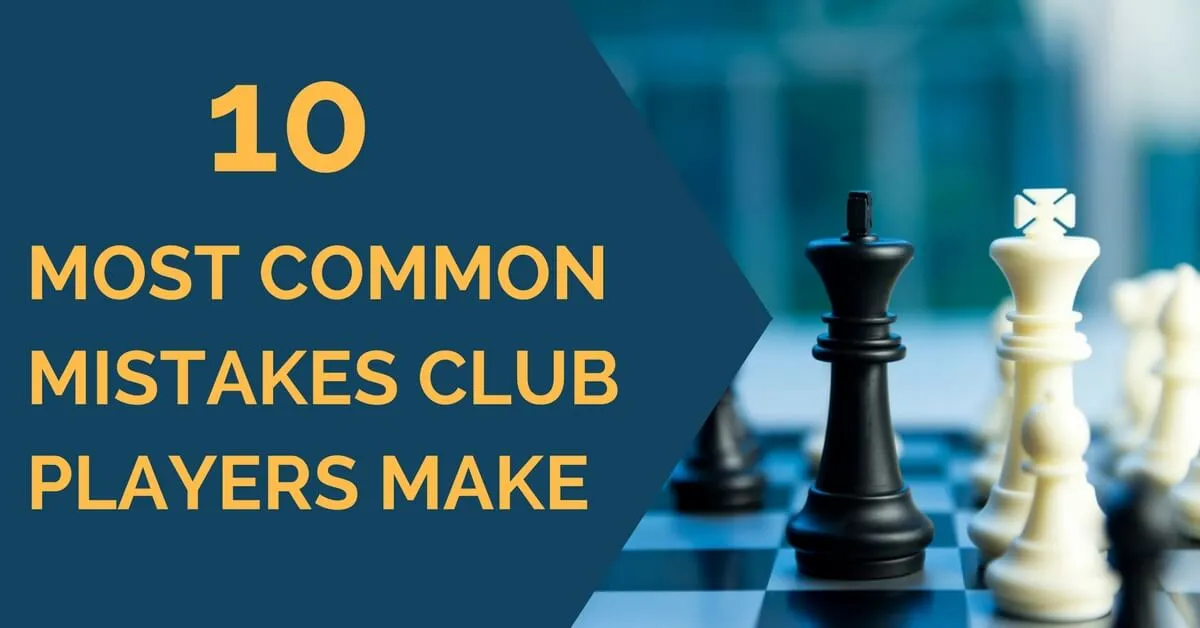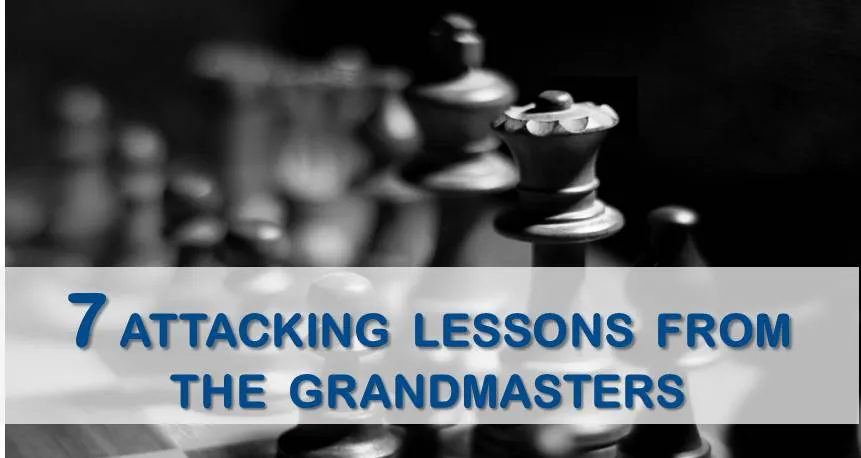6 Ways Chess Masters Think Differently
What is the difference between a chess master and a regular player? Everyone wants to learn the secrets of the masters eventually becoming one. Chess players are constantly looking for a recipe to improve at chess. They focus on things like tactics, endgame mastery, opening theory but fail to address the most important issue – THINKING. In this article we will discover the six ways chess masters think differently from the rest of the field.
1. Chess Masters use the 80/20 Rule
The 80/20 rule is a very important principle. It applies to many areas and chess is no exception. It is known that 20% of efforts lead to 80% of results. While regular chess players spend majority of their time working on wrong things in the wrong way, chess masters know exactly what to focus on and how to train.
That’s why they achieve much greater progress spending significantly less time. The same principle applies over the board. Chess masters know what lines to analyze and what to calculate, while regular players have no idea. That’s why chess masters are more productive, and able to concentrate their attention on the most urgent problems.
2. Chess Masters Are Optimistic
Being optimistic is a great trait, not just for training purposes but also over the board. Positive attitude helps masters to train and absorb information more efficiently. It also helps to stay focused and play at best of the abilities while under extreme pressure. Constantly worrying about the outcome of the game drains energy. Staying calm and optimistic about the outcome allows concentrating on what really matters.
Ready to start winning at chess?
Click here to start your training using the day-by-day program.
3. Chess Masters Are Not Afraid to be Different
Regular players tend to follow the rules. It is a good strategy until you reach certain level, probably around 1800-2000 elo. To improve further you need to start breaking the rules. That’s what chess masters often do. They know when to follow the rules and when to break them.
I’m not talking about moving chess pieces incorrectly or castling while in check. What I’m referring to is breaking common knowledge rules like “not bringing out the queen too early”, “not developing bishops before knights” or “not sacrificing material when unsure”. There are always exceptions to these sorts of things, and only with experience it is possible to recognize those. Masters are great at finding and implementing those exceptions which surely helps them out to get upper hand.
4. Chess Masters Take Responsibility for Any Outcome
While regular players usually blame outside factors for their failures, chess masters know better and assume full responsibility. Have you ever heard Garry Kasparov complaining about losing because of a stupid blunder, or because his opponent got lucky? Very unlikely so. Instead, masters would accept the defeat and identify the cause. Masters don’t see losses as something shameful or unacceptable like the amateurs do.
Strong players see defeats as opportunity to improve. That’s what chess is all about, learning the lessons and mastering the skills. Learn a single good lesson from your every loss and you’ll be on your way becoming a chess master in no time!
5. Chess Masters Are Not Afraid to Take Risk
Risk is part of chess. It is not possible to win games without making risky decisions. Chess masters know how to take well calculated risk. In contrast, regular players are afraid to take risk, such as sacrificing material. Ironically because of that they lose games. Sometimes it is far safer to take a well calculated risk, rather than keep playing a solid defense (for example when you are a piece down and will lose if you don’t play actively).
It is understandable, because the chances to make a mistake “sacing” a queen overweigh possible benefits i.e. checkmating the opponent’s king. Understanding when to make risky decisions comes with experience but until then it is trial and error.
6. Chess Masters Collaborate with Others
This is another significant difference between masters and regular chess players. Regular players rarely discuss chess with their peers. Let me clarify what I mean. There may be some basic discussions here and there, but generally nothing leading to learning. Amateurs generally work on chess individually (or with an especially dedicated coach). Master players collaborate on many different aspects of the game.
They discuss theoretical novelties, analyze games, play full length sparring matches and so on. Master players also participate in training sessions extensively focusing on specific elements of the game. It is very helpful and this is something that makes masters different from the rest of the players, despite 2200 elo. Chess masters learn a lot from each other. That’s something regular players should start doing more often!
If you want to improve your chess level, you need to have a clear study plan. If you aim for a dramatic improvement at chess you need to work on all of the elements of the game in a systematic way:
- tactics
- positional play
- attacking skills
- endgame technique
- classical games analysis
- psychological preparation
- and much more
That seems to be like a lot of things, and that is. But no worries, we have made it easy for you. Our comprehensive training course covers it all and much more. Sign up for 21 Day Training right now!










Comments: